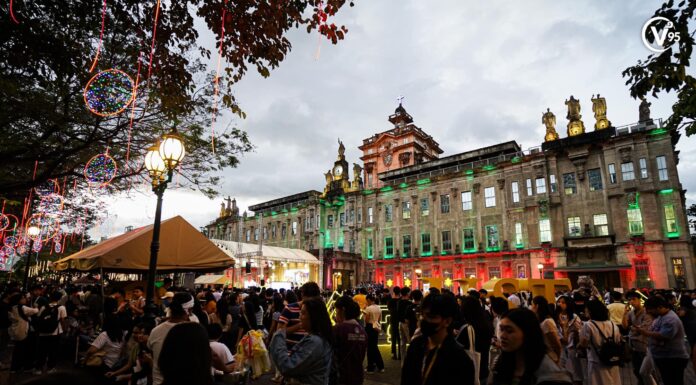UNIVERSITY officials have begun installing more than 700 additional spy cameras as part of the second phase of a multi-million-peso campus security program.
The Facilities and Management Office (FMO) began putting up 725 closed-circuit television (CCTV) cameras at the Albertus Magnus Building, Roque Ruaño Building, AMV-College of Accountancy Building, Benavides Building, Thomas Aquinas Research Center, and Tan Yan Kee Student Center last month.
FMO engineer Oliver Gagarin said the installation would be completed by the end of October.
Last year, FMO set up 587 cameras in the 10 faculties and colleges housed at the Main Building, St. Martin de Porres Building, Beato Angelico Building, St. Raymund de Peñafort Building, and Quadricentennial Pavilion.
Gagarin said the school needed more CCTV cameras to monitor the big number of students who usually converged on what he called “complicated open hallways.” He said some of these hallways are located at the Albertus Magnus Building, which houses the colleges of Education and Tourism and Hospitality Management, Conservatory of Music, and UST Education High School.
“It has sides that face Lacson [Avenue], España [Boulevard], the hospital, and the grandstand,”he said.
Amid concerns about student rights that might be violated by the presence of spy cameras all over UST, Gagarin insisted that they were intended mainly as a security measure.
“We want to take care of our students. It’s like their parents at home watching over them. We now have the technology to do that in the form of cameras,” he said.
It was not clear who gets to access CCTV footage aside from the FMO, which apparently takes care of the undisclosed control room.
From Oct. 31 to June 22 this year, Gagarin said his office received a total of 177 requests for footage. But he said the FMO entertained only those that were security-related. He did not discuss the nature of the other requests.
Security Office Chief Joseph Badinas said spy cameras could serve as a “psychological deterrent” to crime and misconduct on campus.
Reported crimes in UST went down from 70 in June 2009 to May 2010, to 40 in June 2010 to May 2011. The number further decreased to 32 in June 2011—five months before spy cameras were first installed—to May this year.
Never sleeps
Spy cameras never sleep. Badinas said they were always on active mode. He said the absence of infrared means only that their “night vision” feature is deactivated. The cameras operate 24/7.
The CCTV cameras have panning, tilting, and zooming properties, including “tagging features” that allow the network of cameras to monitor a person or an incident from one point to another—from classrooms to hallways and staircases until a person exits the building.
Last year, an employee of Net Pacific, the company in-charge of the installation, told the Varsitarian that each unit of bullet type camera installed in hallways cost P15,000 while dome-shaped cameras available in classrooms were worth P20,000 each. Phase one of the securityproject was estimated at P10 million.
Gagarin declined to say how much the second batch of CCTV cameras would cost. He said details were confidential. Net Pacific also refused to comment.
United deans
Faculty of Engineering Dean Josefin de Alban, Jr. threw his support behind the installation of cameras, saying it would help address theft incidents at theRoque Ruaño Building. His faculty is located near Gate 1 on España Boulevard that is used for public entrance.
But he said spy cameras have yet to be installed in the faculty room because some teachers saw them as a “violation of academic freedom.”
Education Dean Clotilde Arcangel said the CCTV cameras were not meant to infringe on privacy. She said they were a security measure, noting that outsiders were usually able to enter classrooms.
“The installation of security cameras is a safeguard for everybody,” said Dean Ma. Cecilia Tio Cuison of College of Tourism and Hospitality Management (CTHM).
Central Student Council (CSC) Treasurer Joanna Loise Culianan, who is also the head of CSC committee on campus safety and security, said the CCTV installation would help reduce cases of cheating inside the classrooms.
“If they install CCTV cameras, they need to make sure that those are effective—not mere designs and instruments to create fear among students,” she said.
She said spy cameras would also help monitor the attendance of professors.
“I’m not generalizing but there are those tenured professors who tend to abuse their tenured status. Students deserve every single [peso] that they pay for,” she said.Yuji Vincent B. Gonzales and Cez Mariela Teresa G. Verzosa













